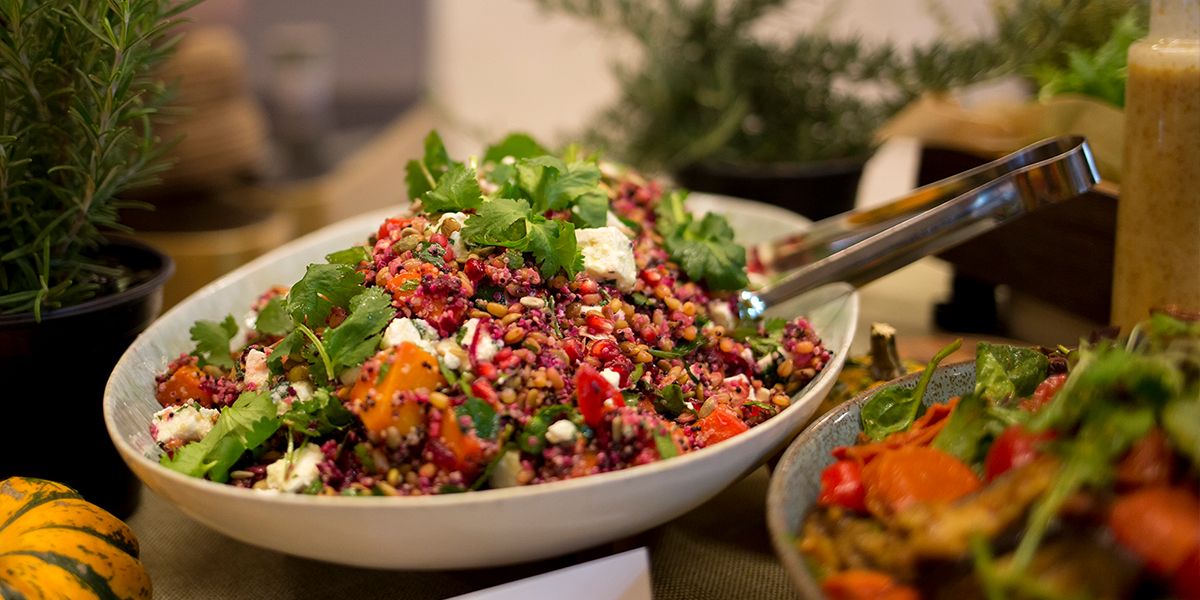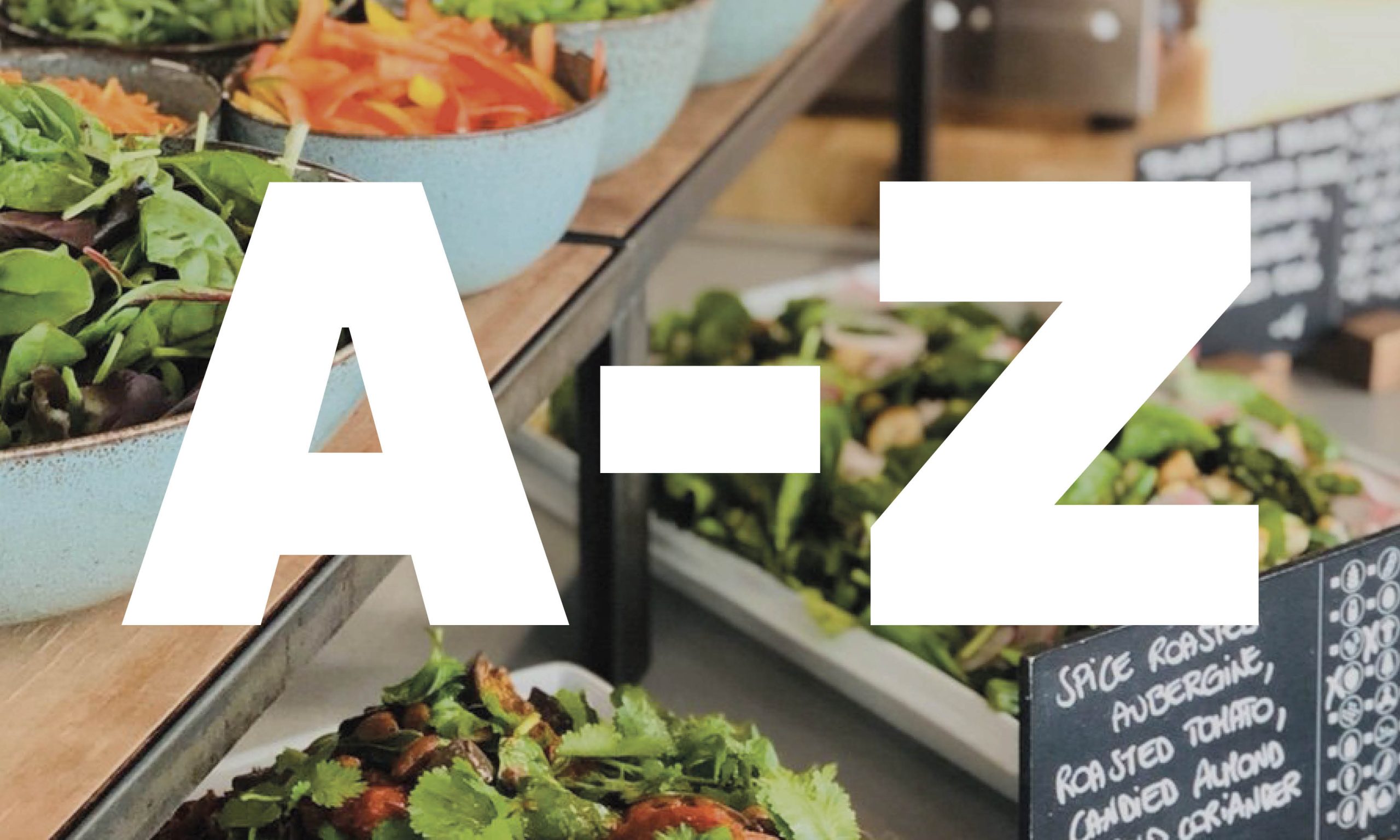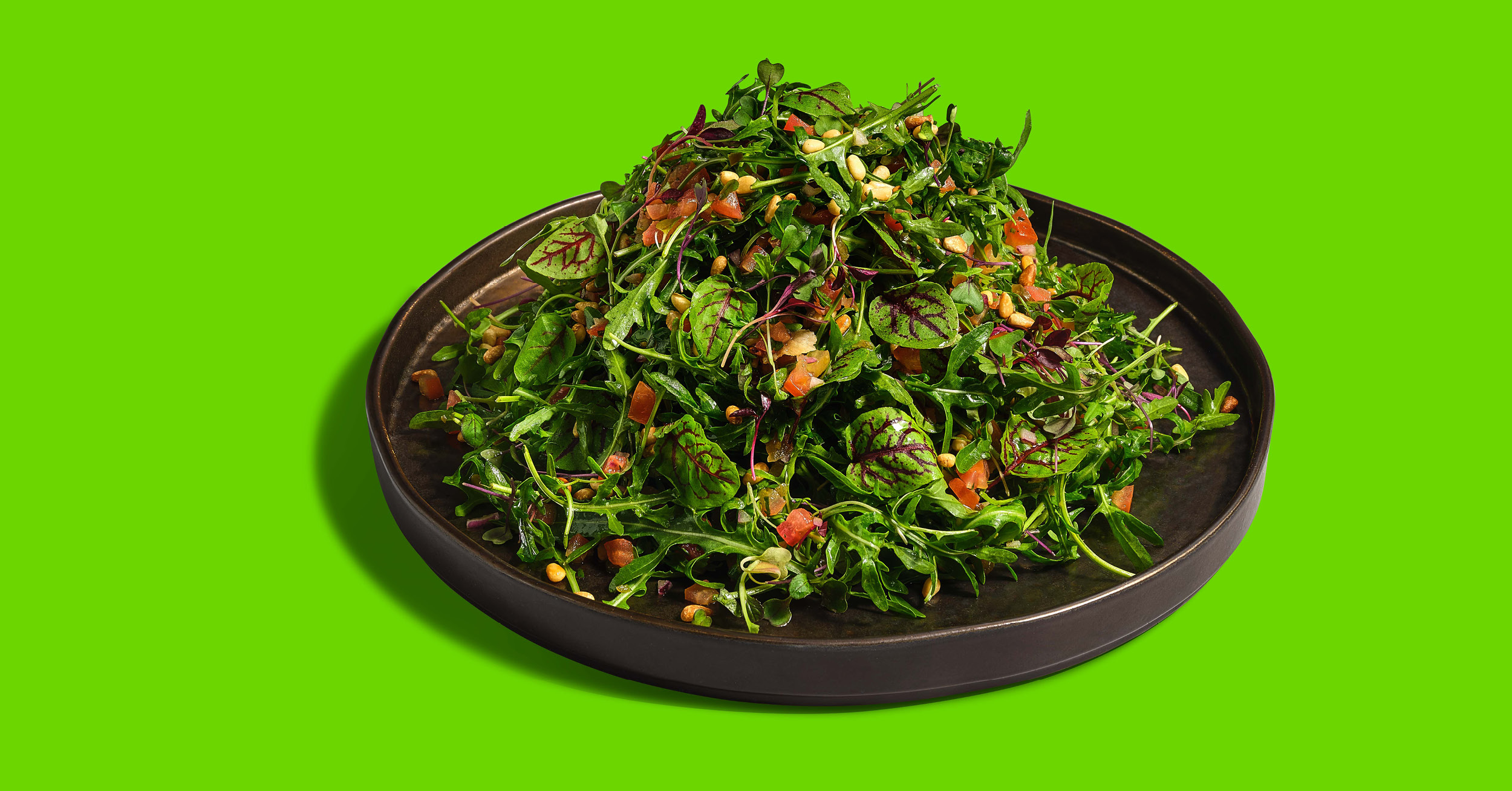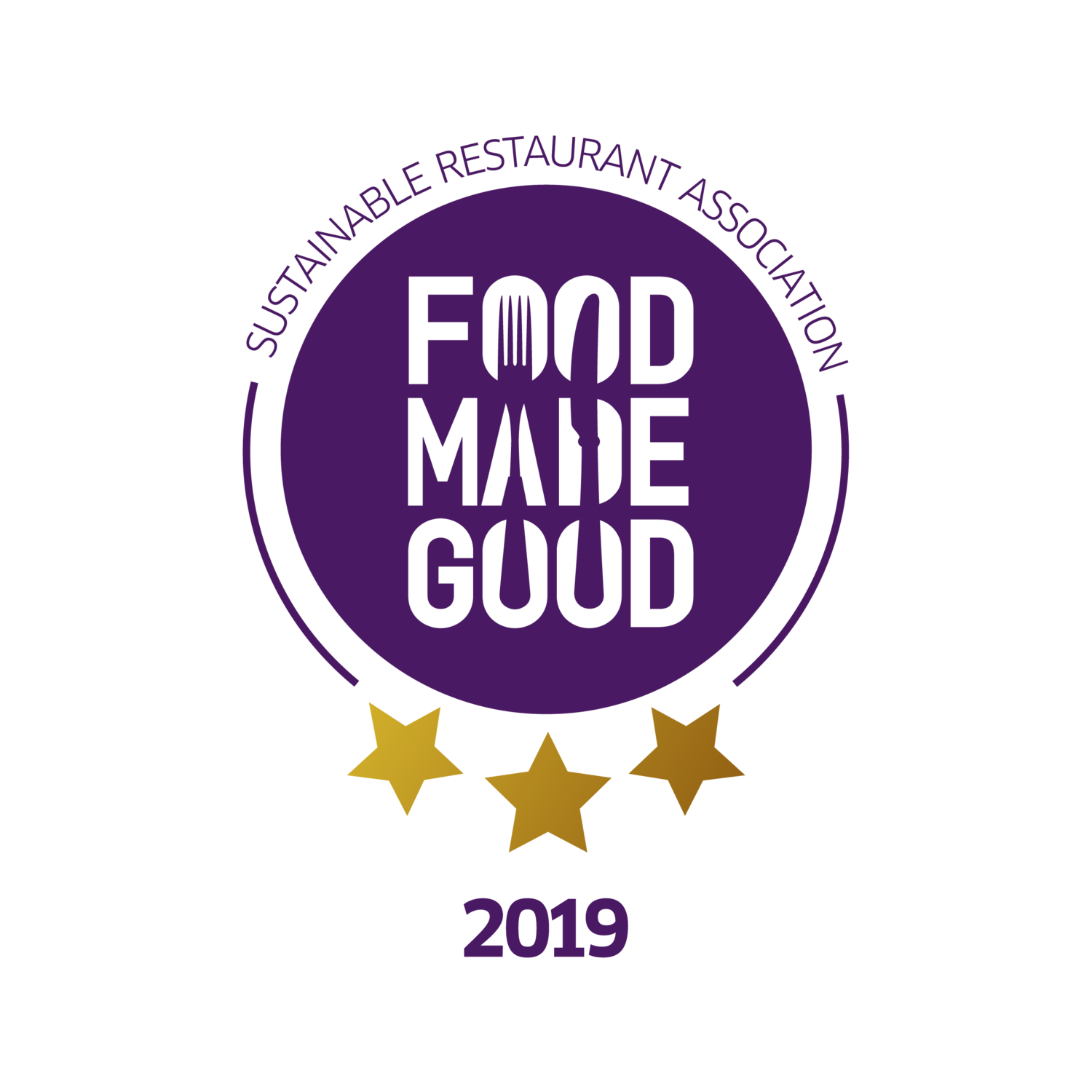Sustainability is a broad term that can mean different things in different contexts. So, first things first, let’s define what sustainability means when talking about all things workplace catering. Here, sustainability means feeding people healthy food, made with ingredients that are local and seasonal, while minimising food waste. Operating a workplace food programme in a sustainable way benefits your coworkers, your company, and ultimately your community and planet Earth. Let’s learn how.
What do sustainable catering companies do?
Working with an office caterer that makes sustainable food means employees will be eating meals with local and seasonal produce, instead of ingredients flown half-way around the world. Why is this important? For one thing, it results in fewer food miles, less fossil fuels used in transportation and therefore lower carbon footprint. By eating locally you are also supporting local economies and communities. Local and seasonal food might also be more nutritious because it is left to fully ripen on the plant, rather than during transport or by artificial means.
Does this mean we need to switch to plant based eating?
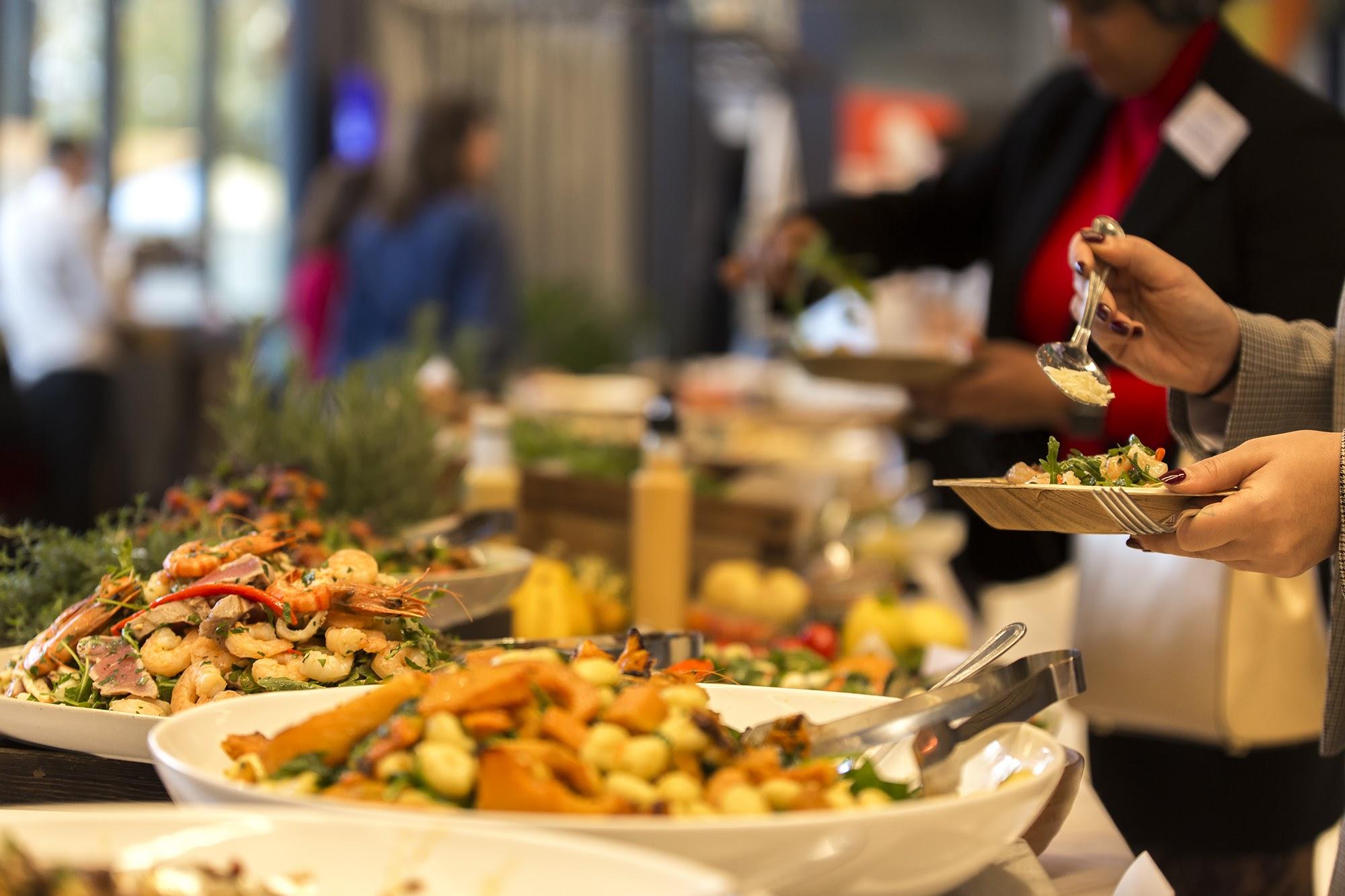
Adding more plant-based meal options is another great way to reduce the impact of office catering. That doesn’t mean we all have to go vegan! But, finding a caterer that gets creative with vegetables and prioritises them on a menu will make an impact on your carbon footprint. Your caterer could also think about swapping meaty ingredients for less carbon intense ones – for example chicken mince in your lasagne instead of beef.
Placing plant-powered meals at the top of a menu or the beginning of a buffet line goes a long way in helping people choose less meat. Since changing how we write our menus and arrange our buffet we’ve noticed a marked difference in what people eat. This, coupled with adding more vegan and vegetarian mains to the menu, has resulted in a 10% reduction in meat consumption per head across our client sites.
What is the role of food waste in improving sustainability
With a third of the food produced globally going to waste, food waste is a huge contributor to greenhouse gas emissions. In fact, if food waste were a country, it would be the third largest contributor to CO2 emissions after the USA and China (isn’t that a crazy stat?). You can’t have a discussion of sustainable office catering without talking about food waste. Workplace meals should minimise food waste and this can be done in a variety of ways from menu writing to portion control. Of course everything should be done to avoid food waste, but some food waste is inevitable. Surplus meals can be redistributed to people that need or want them. Inedible food waste can be kept out of landfill in various ways. In our London kitchens, we use a digester called an ORCA that acts as a big mechanical stomach that turns the waste into effluent safe for our sewer system. You can read more about our food waste journey here.
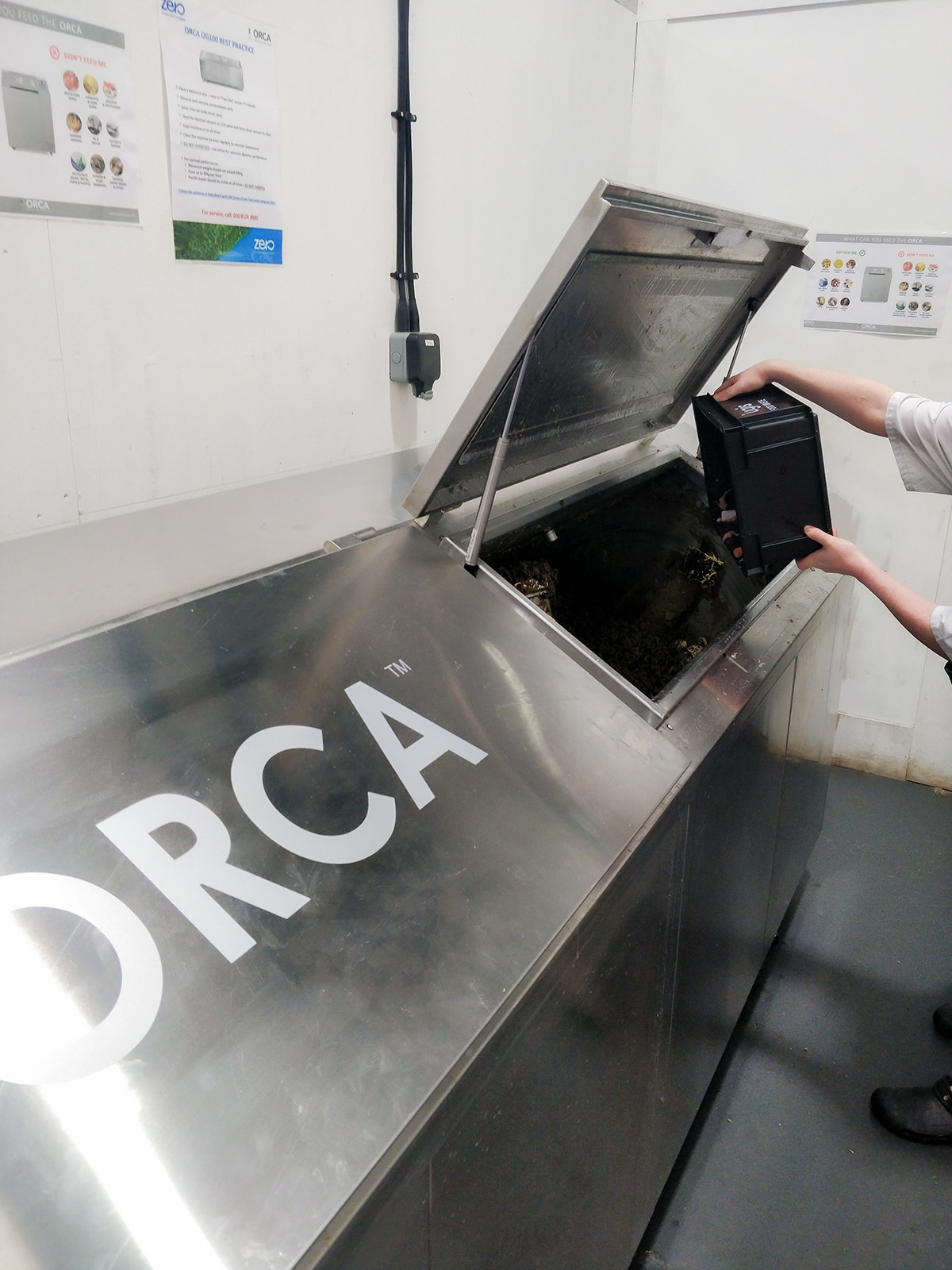
So what should you do if you want to start a sustainable workplace food programme (or make the one you have more carbon friendly)?
- Talk to your caterers about what their carbon reduction goals are and how they’re going to achieve them. Ask about accreditations they may have – while being accredited isn’t necessary, it does help prove their commitment and hold them accountable to any goals they set. Some good accreditation schemes to look out for are Origin Green, Planet Mark and ISO14001 . Share your sustainability policy with them so you can work together to achieve common goals.
- Find out what is important to your staff. You need everyone on board for your food programme to be a success. Aside from delicious food, what do they want? Is it inclusivity in terms of allergens and dietary restrictions? Is it organic produce? Maybe they want to know what your caterer does for the community? Whatever it is, get their input and keep the lines of communication open.
- Speaking of communication! Talk to your caterer about how they can help you promote the sustainability of your food programme and gain buy-in from co-workers. Ask them about special themes and events that bring awareness to the issues. A great example is participating in Stop Food Waste Week by promoting menus made from surplus. Slack channels, signage and customer service knowledgeable about sustainability all help to bring a sustainable food programme to life.
- Think about packaging. Our buffets are packaging free because we deliver everything in reusable ceramic or steel containers. If a buffet works for your office then great, but sometimes people want to just grab and go. In that case, what kind of single use packaging does your caterer use? Is it compostable? If so, are they making sure the compostables actually get to an industrial composting site? If compostable packaging ends up in landfill or contaminating recycling bins then there’s not much point in using it!
- Understand how food waste is managed. Your building may have waste segregation policies in place so make sure your caterer knows the rules. Also ask them what they do to minimise waste. If your caterer doesn’t have a good answer in this day and age then it’s safe to say sustainability is not their top priority.
We have found more and more companies seeking out our services specifically for our sustainability credentials. With the climate emergency upon us, every facet of work and life needs to address how we reduce our impact on the environment. Words aren’t enough, we need action. Hopefully, this article has provided some practical insights and ideas on how to make your office catering more sustainable. If you have any questions or want to discuss a specific issue you’re facing with your workplace food programme, we’re here to help!
